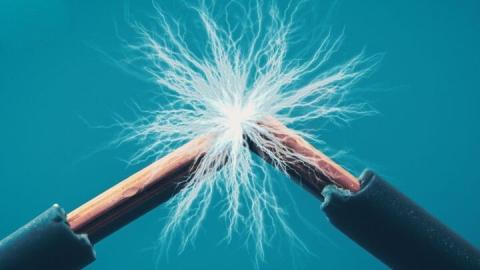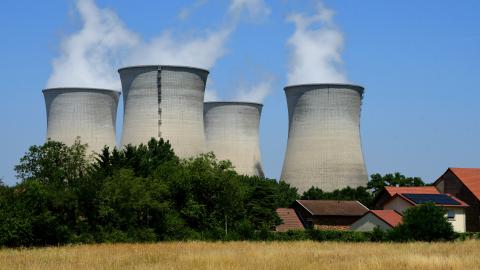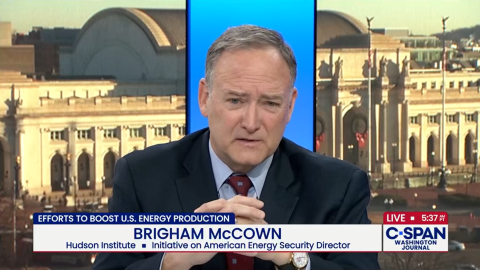
The Future of US–Central Asia Relations

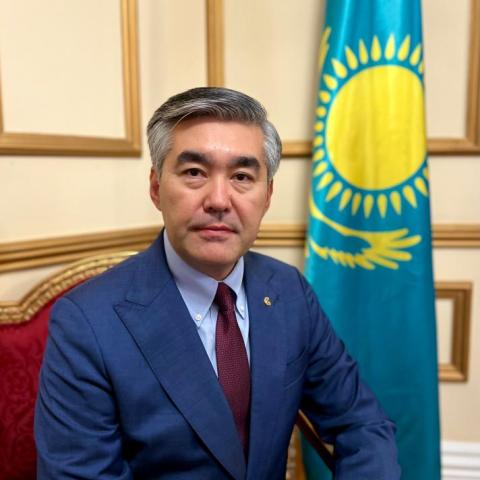
Ambassador of Kazakhstan to the United States
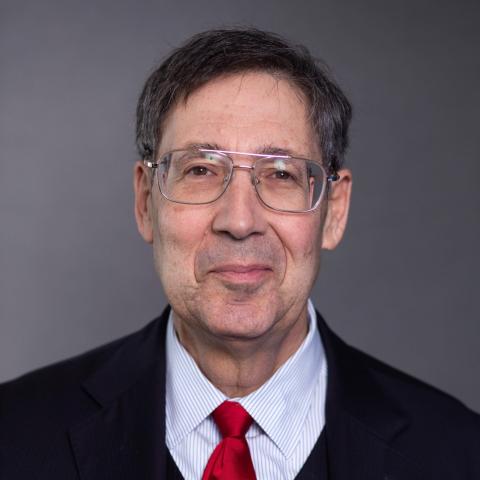
Senior Director, Eurasia Center, Atlantic Council and Former US Ambassador to Ukraine and Uzbekistan
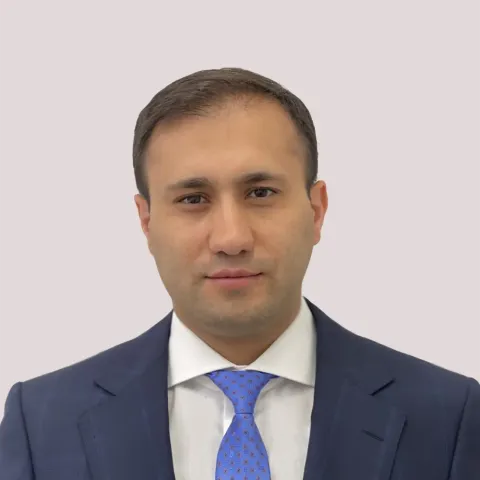
Chief Executive Officer, Caspian Policy Center (CPC)

Executive Vice President
Joel Scanlon is executive vice president of Hudson Institute.
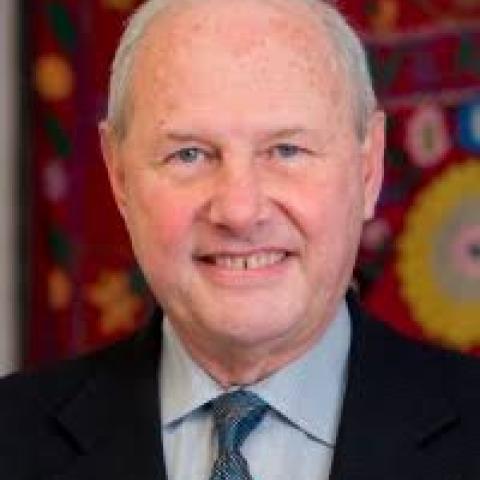
Founding Chairman, Central Asia–Caucasus Institute and Silk Road Studies Program

Senior Fellow, Center on Europe and Eurasia
Luke Coffey is a senior fellow at Hudson Institute. His work analyzes national security and foreign policy, with a focus on Europe, Eurasia, NATO, and transatlantic relations.
The historic C5+1 summit in Washington—at which President Donald Trump will host the heads of state from the five nations of Central Asia (Kazakhstan, Kyrgyzstan, Tajikistan, Turkmenistan, and Uzbekistan)—will aim to create new momentum for American engagement in the region.
In an era defined by great power competition and the fight against transnational terrorism, the United States and the five nations of Central Asia share many common interests. Additionally, Central Asia lies at the heart of the supercontinent and is rich in energy and mineral resources. After 10 years of engagement through the C5+1 format, Washington and its C5 partners need to elevate their cooperation to a new level.
At Hudson, a panel of experts will discuss the future of US engagement in Central Asia and opportunities to deepen cooperation. Hudson Executive Vice President Joel Scanlon will provide introductory remarks and Kazakh Ambassador to the US Magzhan Ilyassov will give a keynote address.
Event Transcript
This transcription is automatically generated and edited lightly for accuracy. Please excuse any errors.
Joel Scanlon:
Good morning, everyone and welcome to Hudson Institute. I’m Joel Scanlon, executive vice president here at Hudson. Thank you for joining us as we discuss the importance of US-Central Asia relations, a topic that unfortunately has not received the attention it deserves in Washington in recent years, but hopefully this morning we’ll begin to change that.
Our event today comes in the aftermath of last week’s historic C5+1 summit hosted by President Trump. Central Asia has for millennia served as a crossroads of cultures and trade. Today the region’s importance has only grown. As we enter a new era of great power competition, the United States can no longer afford to turn a blind eye to this strategically vital part of the world. It was our honor this morning to welcome His Majesty, Magzhan Ilyassov, Ambassador of Kazakhstan to the United States to deliver today’s keynote address.
Kazakhstan has long been an important partner of the United States; supporting transit and overflight rights during America’s two decades in Afghanistan, cooperating closely on counterterrorism, and serving as a major energy partner. It is a regional economic power and is the center of America’s economic presence in that region. Last week, a memorandum of understanding was signed between Kazakhstan and the United States on cooperation in the field of critical minerals. It will lead to an even closer relationship between our two countries on a very important issue.
At a time when one of the top foreign policy priorities of the Trump administration is achieving peace in the Middle East, Kazakhstan also has distinguished itself as a friend of Israel and just last Thursday formally joined the Abraham Accords. Ambassador Ilyassov is an accomplished diplomat in Statesman who comes to Washington after serving as Kazakhstan’s ambassador to the United Kingdom, represented his country as the permanent representative to the United Nations. We are grateful for the time you’ve taken to join us this morning, choosing Hudson for your first public engagement in Washington.
After the ambassador’s remarks, we’ll have discussion of experts moderated by my colleague, senior fellow, Luke Coffey. Without further ado, please join me in welcoming Ambassador Ilyassov to Washington and to Hudson.
Ambassador Magzhan Ilyassov:
Thank you very much. Good morning, everyone. Indeed, it was five days ago that I landed in Washington DC and on my second day I found myself in the Oval Office sitting next to my president, President Trump and attending the C5+1 10th anniversary event, which I think was a milestone. It is a great pleasure to be here in Hudson Institute, an organization long recognized for shaping global policy debates and for its meaningful contribution to strengthen cooperation, not only between Kazakhstan and the United States, but across the entire central Asian region. It’s truly fascinating how Washington has become the focal point of Central Asia’s engagement and it’s quite timely.
C5+1 Summit, hosted by President Trump, marked a truly significant milestone, the 10 anniversary of this unique platform. We regard the event, not merely as a commemorative occasion, but as a turning point, a moment to reflect on our achievements and more importantly to look ahead. The anniversary offers a valuable opportunity to rethink our cooperation and to develop new formats that respond to the realities of today’s world.
Over the past decade, the C5+1 has proven itself to be a stable and constructive platform for dialogue. Now, it must evolve, moving from discussions to joint strategic action, from coordination to tangible implementation guided by shared priorities and measurable outcomes. Recent visit of President Tokayev to Washington for the C5+1 presidential summit marked a pivotal moment in advancing our bilateral ties, yielding concrete agreements that align with our shared vision for prosperity and stability. For example, on the sidelines of the summit, we signed contracts worth of 17 billion US dollars with Boeing, Cove Capital, Lidos, John Deere, Citibank, Colorado School of Mines and Partners, VEON, that’s satellite and Starlink, OpenAI, NVIDIA, Freedom Holding in Ministry of Digital Development, a memorandum on critical minerals that shows the spread, the diversity of our economic ambitions, and of course on a political track, a separate track, my country joined Abraham, of course, the first central Asian nation. That expands ties with Israel and gives the signatories, now including Kazakhstan, when we sign it, security trade, tech, agriculture and renewables conditions.
When we announced the accession to Abraham, of course we became the first country from our part of the world to join this historic framework. By normalizing and expanding ties with Israel and fellow Accord signatories, we aim to enhance regional security, facilitate trade corridors and unlock opportunities in technology, agriculture, and renewable energy, further embedding Central Asia in a network of trust-based diplomacy.
What is our vision for the next decade for C5+1 as we just marked the first 10 years? As we look ahead, I share my personal view of how the C5 should evolve, C5+1. By the way, our president said that when we say C5+1, which is plus United States, it sounds like a supplement, we think we should rename it to C5 and United States, so maybe from now on we should go C5 and United States. We believe that C5 and United States should evolve not only in substance but in form. The future lies in turning political commitment into permanent mechanisms of collaboration. For that, we think that project-based model is timely. Each C5 and US cycle would center on three to five flagship initiatives; infrastructure, innovation, education for example.
These innovations should be jointly funded, monitored, and with measurable KPIs. Alliance with America First pragmatism, clear outcomes, shared investment, mutual benefit. We suggest that when we say C5+1, we’ll discuss this and that, we identify the particular topics on which we want to concentrate and deep dive for the next three, let’s say, five years and work on this.
Second feature that we want to see in C5 and United States is to be co-owned and co-driven, which means a strong US leadership, equal initiatives from Central Asian countries as partners and goals that are defined together, the work that we share and of course the shared pride in the results.
The third point that we would like to suggest is a hybrid engagement model, which is government plus intellectual think tanks, plus tech tracks and digital coordination platforms, joint innovation forums. So connecting policymakers at the top with those who back up them with analytical skills and also using business, and technology, and AI, and everything that comes along to make sure that C5 and US turns into an engine of continuous exchange where ideas are tested, partnership formed, results tracked.
We spoke about permanent mechanisms of collaboration. We, in Kazakhstan, believe that this former deserves a permanent secretariat, people who will work on making things happen, not from forum to forum, but on a daily basis. We believe that the secretariat of C5 and United States can be rightly hosted in Almaty, Kazakhstan, which is the financial capital for our part of the world, which is the place that will be hosting the biggest consular general office of United States in that part of the world. I think with the US team in Almaty, that will be a part of the consular general office. This is a location where C5 and US secretariat can work effectively with our neighbors, because Almaty is located close to Kyrgyzstan, there is close proximity with Uzbekistan, so this is the perfect location. This is a very cosmopolitan, modern city that is the hub for infrastructure, finance, commerce, and everything that has to do with trade and investment.
Such a model structured, project-based, co-owned and intellectually driven can turn the C5 and US into one of the most dynamic regional partnerships in Eurasia. It would reflect the best of both traditions, American strategic vision and central Asian pragmatism.
I would like to thank everyone who are here today and also the Hudson Institute for their unwavering commitment to transatlantic and Eurasian dialogue and for the opportunity to share Kazakh’s vision for stronger, more innovative C5 and United States. I’m confident that together we will turn today’s ideas into tomorrow’s results and realities. Thank you very much.
Luke Coffey:
All right. Ambassador, thank you so much for those opening remarks. Very optimistic take. I like to hear the optimism in, not only the US-Central Asia relationship, but also specifically the US-Kazakh relationship. I will try my best to say C5 plus United States. I do like this.
Ambassador Magzhan Ilyassov:
And United States.
Luke Coffey:
And the United States, yes. We’re going to kick off the panel discussion and the Ambassador’s kindly agreed to join us during the Q&A session as well. I’m going to ask each panelist, after I introduce them, to give us their take on the C5 plus United States meeting last week; what was good, what needs improvement, what do we need to do going forward? As the moderator, I may take the prerogative of asking a question or two myself, then I’ll open it up. We have someone with a microphone, so if I do call on you, please state your name and any relevant affiliation and ask a question, not deliver a speech, please.
Our first speaker, I’ll just quickly introduce them in order, although I don’t think any of them need any introduction. Our first speaker is going to be Ambassador John Herbst, who is the senior director of the Atlantic Council’s Eurasia Center. Ambassador Herbst knows the region very well, had a very distinguished 31-year career in the state Department, including as ambassador to Ukraine, but relevant to this discussion today, former US ambassador to Uzbekistan, but at a very crucial time in our recent history during 9/11 and immediately after where he was involved in some of the negotiations at the time over US access to the Karshi-Khanabad air base.
After him, my good friend, Efgan Nifti, who’s the chief executive officer and founder of the Caspian Policy Center, will give his take. Efgan under his leadership, has taken the Caspian Policy Center from a think tank, I remember with just two or three people, to what it is today, which is an enduring, constant presence on the policy scene here in Washington, focusing not just as the name would apply, not just in Central Asia or the Caucasus, but the greater Caspian region. Efgan, thank you for joining us today.
Last, but certainly not least, everyone knows Fred Starr. If you’re here today, I’m guessing you know Fred Starr or know of him, or have read his extensive work on the region. He’s the founding chairman of the Central Asia-Caucasus Institute and Silk Road Studies Program, which now has an affiliation with the American Foreign Policy Center or institute. AFPC Center.
S. Frederick Starr:
Council.
Luke Coffey:
Council. Council. I always call it APC, I never actually had to say it all out loud. What you don’t know about Fred, beyond his distinguished scholarship on Central Asia, he’s an accomplished jazz musician and he has also written four books about the history of New Orleans, which he says is his real passion in life. Without further ado, I’ll turn it over to Ambassador Herbst to start us off.
Ambassador (ret.) John E. Herbst:
Luke. Three or five minutes?
Luke Coffey:
Yeah. Three to five minutes.
Ambassador (ret.) John E. Herbst:
Okay, fine.
Look, the C5 plus the US last week, the first time done in Washington, at the presidential level, is an event which uncharacteristically has real import and not much attention. When you consider this was a Trump initiative, the fact that it doesn’t get much fanfare is very interesting, but it’s potentially extremely significant. Why? Look, Central Asia is literally the center of what Mackinder called “The Great World Island.” It’s the very center of geopolitics. Its importance beyond that specific point is for the United States that is bordered by three of the four hostile actors, the most important hostile actors to American interests; China, Russia, Iran. The fourth actor of course has a presence of in Central Asian, and that’s North Korea.
Now, by pointing that out, this is not where my remarks are going. I think Fred will take this up because this means it is extremely important geopolitically, but neither the Trump administration, nor the central Asian nations want at this point to pursue what you might call the 21 century version of great game geopolitics. The central Asians understand the importance of a greater American presence in the region, and credit team Trump for recognizing, in its own way, the importance of Central Asia to us. The events last Thursday was quite significant in term of American interests and obviously in terms of central Asian interests, because they want us there as much as we’re willing to be without overly exciting the jealousies of either Beijing or Moscow. That suits the Trump team just fine.
Well, I shouldn’t say the most attention, but the greatest activity was strictly speaking in the business sphere. There was a document put out, I think by the Commerce Department, which spoke of $100 billion worth of deals, potentially multiple values of deals in the future, heavy emphasis on rare earth and critical minerals, which is very, very important. Hereto, I credit Trump with a very energetic approach to this severe problem. Our allowing China to establish a near stranglehold over the mining and processing of rare earths in particular is a decades-long failure of American policymaking. While the Biden team understood this sort of, they went about it in their lackadaisical way, whereas Trump has been full bore, whether dealing with the DRC, the Democratic Republic of Congo, or with Central Asia. Kazakhstan we know, in particular, is wealthy in rare earths. This is part of it, and it may be a very important part of it, but not all of it.
To me, the biggest takeaway from last week was point 21 on the State Department document, put out Saturday, which was what Kazakhstan has called for many years, the Middle Corridor and the document that state put out the trans-Caspian something route. The key here is Trump has a vested interest in this beyond what we’re doing in Central Asia, because this ties into one of his real achievements in the past nine months, which was, I would not say his making piece between Armenia and Azerbaijan, but his stabilizing the piece, which they were coming to a little bit too reluctantly and making it more likely that that piece would last. Of course, the core element in the Trump dealings in the South Caucasus was what they call the Trump International, whatever it is, Transportation Corridor.
Luke Coffey:
Trump Route for International Peace and Prosperity.
Ambassador (ret.) John E. Herbst:
Thank you very much. You win.
Luke Coffey:
Rolls off the tongue.
Ambassador (ret.) John E. Herbst:
Rolls off your tongue. Okay. This now gives Trump a specific interest in the Middle Corridor. While this is not “geopolitics” strictly defined, it is geoeconomics which has significant geopolitical impact if in fact this project is realized. I see much greater American engagement in Central Asia than two or three weeks ago. I see a commitment from US leadership to expand this. I see maybe a serious alternative to China’s . . ., Bri—
Efgan Nifti:
Belt and Road—
Ambassador (ret.) John E. Herbst:
. . .I’m having trouble with that first word road, Blet and Road initiative, which again has geoeconomic and ultimately geopolitical importance. This is a good day for us diplomacy. It’s a good day for the nations of Central Asia.
Thank you.
Luke Coffey:
Thanks, John. Efgan?
Efgan Nifti:
Thank you, Luke. It’s always good to be here. I know last time when we were here, we were discussing the Caucasus and now we’re . . .
Luke Coffey:
Now we’re doing the other side of the Caspian.
Efgan Nifti:
We’re going trans-Caspian, basically.
Luke Coffey:
Yes, exactly.
Efgan Nifti:
I want to say that 2025 has been monumental for our region because of the US engagement in that perspective. Again, I want to credit administration for two big, huge successes. First in August 8, initialing, The Peace Agreement between Azerbaijan and Armenia and now the Central Asia basically in November. I think this all happening in the very backyard of Russia long considered area that we always have been criticizing the less US engagement. Now we have a lot of US engagement basically. I lost count of events about Central Asia in last week, basically. This is kind of a hangover moment for us this Monday because last week we had several events, not only in the official settings but also in the think tank community as well. I’m glad to see this momentum. I’m glad to see that, as John mentioned, kind of presidential level attention to the Middle Corridor and development of the connectivity in the region.
I want to say that maybe many of us still trying to understand or realize how huge issue is this, because C5 countries used to go to Moscow, Beijing for many summits, meetings, conventions. For me, personally, it was very basically important to see them in Washington coming together, discussing as a region with the United States, the potential of the region, the collaboration on economy and other areas. As John mentioned as well, I see a lot of business-driven engagement as well with the region. I have in my list of agreements here, long, long list of signings with the region, with Kazakhstan, with Uzbekistan, with other countries. I’ve seen, over the last week, a lot of big US media trying to reach to different policy experts to analyze what happened with the region. It included Washington Post, New York Times, which I actually haven’t seen them interested about the region this much before.
I think it’s a big moment and I think we all should be seizing and trying to take practical steps to realize all the commitments that have been made in Washington. As I say, many deals have signed, some say it’s about $100 billion in total, but I think what will be critical now to track the success, but also to see how many of them will be implemented. Because we have seen many MOUs, many agreements in the past as well, let’s say with China, with other countries, but serious dedicated work. I think that goes to the think tank community perhaps to look into that. I liked, John, your meeting the other day at the Atlantic Council about trying to see how the expert community can discuss and see what progress have been made in coming years on that.
I also want to highlight the joint declaration that was posted last week after the meeting happened. I would say that three key components of that declaration, one was on the critical minerals, obvious resources, technology and other areas of collaboration with Central Asia. I think it carries huge significance. Second important part was about the improvement of the business environment because a lot of the US companies are interested in the region, but they’re also to see how the conduct of the business will happen in the region. I think that’s going to be another big area we’ll all have to work with central Asian countries.
The third one also was a very big highlight in that declaration was the Trans-Caspian connectivity. I think it’s good to have all these agreements, but access to the region will be key. As Ambassador Herbst very eloquently described the geopolitical and geoeconomic neighborhood of the region, and for now, the key connection to the region that will be helping to access and to make sure that the region has access to the global market is the Trans-Caspian connectivity.
I think that a lot of work will have to be done in that regard. Increasing the shipping capacity, addressing the issues of bottlenecks, those are critical to make sure that there is a steady access to the region and there is a opportunity to actually, when you invest in the minerals in the region, how are you going to carry to the global markets.
I think I agree with what Ambassador Ilyassov said here, was developing different formats and I want to highlight the importance of C5+1 format where we discuss improvement of the business environment in the region. Also, I want to highlight that I managed to attend two important events, one in Astana, one in Tashkent last month about the think tank forum that started in the region. C5+1, or as Ambassador says C5 and the United States Think Tank Forum. I think we need to see what other platforms we can come together and increase the portfolio of engagements in that format. I also want to maybe say that looking into the future, we should make sure that maybe we have . . . Since the huge importance of trans-Caspian connectivity and huge interconnection between the Caucasus and Central Asia, I believe that down the road we have to look into now that we are done with the 10 anniversary, I would like to also support here, President Tokayev’s last statement in terms of expansion of the Central Asia C5 format into the Caucasus. I think that’s something we should be looking forward.
I will stop here, Luke.
Luke Coffey:
Great. Thanks, Efgan. Fred, please.
S. Frederick Starr:
Thank you. I want to point out at the very beginning, C5+1, however you call it, was in fact proposed by Central Asia by the Kazakh ambassador, Omarov. It was then supported by his predecessor and his successor. So three Kazakh ambassadors were really the key founders of this. The initiative did not come from the US side. I bring that up because I’d like to take a little longer view, beyond this period of enthusiasm, which I share entirely, and I agree with what my colleagues have said.
Where do we go from here? This celebratory mood is worthy, but let’s not lose sight of the fact that it took 10 years to get here. Why did that happen, we should ask. Does that say something about the likelihood of effective implementation of the agreements that have just come forward? We’re still talking about a region in which no US president has ever shown his face. Meanwhile, Mr. Xi has been in the region 17 times, Mr. Putin I think about 60 times. Let’s temper our enthusiasm and be sober about what we have to do going forward.
Now, the lack of urgency is what I’m speaking about. This is strange because, as Ambassador Herbst said, we’re talking about the heart of Asia. If this big region evolves as a group of relatively open societies with relatively functioning economies, et cetera, if that happens, everyone wins. If it doesn’t happen, you end up with absolute ban of authoritarian regimes going from the Korean-Chinese border all the way to the Gulf. This is a very big issue and it’s not been framed as such in Washington. Or for that matter, has it been framed as such elsewhere?
You can ask, why has this not happened? I think the first reason is what you might call a hangover. The United States was used to dealing with this region under the rubric of the USSR. Most of the people in our government, and outside, were used to thinking that way. Indeed the whole region was put in the Department of state under the same block as Russia. That would be comparable . . . By the way, seem to be going back to that today. That would be comparable to 19-century France treating the United States only under the offices in its foreign ministry for Britain. How bizarre is that?
Anyway, the other reason for this delay is central Asian fears, and these are under understandable. They aren’t expressed, but they’re sober, and real, and they have to do with their big northern neighbor and to some extent also with their big eastern neighbor. This has prevented them from taking initiatives institutionally that every other world region is taken, and that is to set up structures that are unique to the region and exclusive. Those still don’t exist.
Where do we go from here? It seems to me there are three tasks right now. One is institutionalize. The United States should not just institutionalize this in our structures here, we’ve done it, but the consultative group I gather meets monthly and maybe a little more frequently would be good. Second, the institutionalization should take place in Central Asia. There should be an exclusive purely central Asian organization without American involvement, without any foreign involvement, including as observers. If that existed, we would have much more effective interaction than we have now. The United States can encourage this, welcome it, foster it, but not be part of it.
Beyond that, second major point is that we should expand. Azerbaijan should be added tomorrow, and the United States should take the initiative on this. The presidents of central Asian countries have already done this. They’ve invited President Aliyev to all their meetings, so why don’t we be proactive for once and not wait, make this C6 for one immediately.
Now beyond that third is we should be much more direct than we’ve been, off the record maybe, behind closed doors in talking about security. I mean real security. There are various levels of it, some of which are under discussion now. This is a region that is facing very complex security challenges, both from the east, and from the north, and the south, and southeast, and southwest. We should initiate the discussion about security, which has barely entered the C5+1 dialogue up to now.
I end with that. Thank you.
Luke Coffey:
Thanks, Fred. Those are some great concrete and I completely agree with the adding Azerbaijan to that. One only needs to look at a map to understand why it’s a necessity, not just a luxury. I’m mindful of the Ambassador’s busy schedule today. So I’m going to forego any moderator’s questions and turn it immediately to the floor. If anyone has a question that they would like to ask, please raise your hand. The gentleman in the blue shirt here. Please state your name and any relevant affiliation and keep it short question, that’d be great.
Audience member Prab Singha:
Yes. My name is Prab Singh. My initial question was about which sitting US sitting president would win a gold medal, visiting any of the central Asian countries. I actually was looking at professional companies in Central Asia, there’s no Fortune 500 company in Central Asia, currently, yes, there are minerals, but which company do you think will be able to step up or what is the strategy to help get one?
Luke Coffey:
Thank you. I’m going to take a couple of questions together. Eka, the lady in the white in the front,
Audience Member Eka Tkeshelashvili:
Eka Tkeshelashvili, former foreign minister of Georgia, currently with GMF, distinguished fellow. It’s a little bit tricky question with the geopolitics sort of relationship there, but then would you think that all of it that we have now happening, in terms of the opening and then enthusiasm that we have, is partially related to Russia being overstretched with its war in Ukraine and then having less capacity to be a spoiler, which it usually is. Is that reflected well enough? Maybe, Fred, you could comment on that with the administration here in terms of the sense of urgency so that what needs to be done now to follow up with the openings that we have is quite urgent, because now is the momentum to do that and then to build on it so that it becomes a little bit more irreversible rather than it could be when it comes to the capacity of Russia to be a spoiler.
Luke Coffey:
Thank you. Two questions, in a nutshell; what business opportunities exist in the region to bring in the big Fortune 500 companies and then I guess Russia’s inability to be a spoiler, or to act in this traditional way in the region? I’ll open it up to anyone who would like to answer.
Fred, do you want to have a first stab at that?
S. Frederick Starr:
I’ll just take the second one.
Everything taking place is affected by, and taking place under the shadow of the Russian war against Ukraine. That’s the reality. Now out whatever formal outcome exists, Russia has crippled itself. It’s done itself, incredible damage in every conceivable sphere; demographic, economic, social, you name it. Energy, export, the world. This is a reality. This has nothing to do with politics. Russians themselves, including Z Russians are all saying this, that the country’s being destroyed as we’ve known it. That means there’s a window right now to institutionalize that wasn’t there earlier. I’m an optimist, I think this will be situation like after the Crimean war in the 19 century, which led to the era of great reforms. It really were great reforms. Maybe that’ll happen, we can’t rule that out. For now, this is an ideal moment to move quickly and institutionalize.
Luke Coffey:
Mr. Ambassador, I know that you have a hard . . .
Ambassador Magzhan Ilyassov:
No, no, I was saying I want to stay.
Luke Coffey:
Perfect. Great. Great.
Ambassador Magzhan Ilyassov:
Can I?
Luke Coffey:
That’s music to my ears. I appreciate that, I appreciate that. Great, so we have a little more flexibility. Does anyone want to tackle the first question about the business opportunities? I think Ambassador, please, I know you mentioned that in your remarks, Kazakhstan’s open for business. Did you want to add anything to that?
Ambassador Magzhan Ilyassov:
Well, Kazakhstan has been open for business since 1991, so that’s one thing people kind of don’t see clearly. We have been working with US companies all these years. We have Chevron and Exxon doing business since 1990. The Soviet Union was still there when Chevron signed that big deal. Now, in 2025, where we would like to invite American companies is a different kind of economy. Economy based on technologies. Mining is a very promising area because it was always oil and gas before, but mining has been always in Kazakhstan an industry, but now it can be an industry driven by American technologies, by American finances. When in Kazakhstan we invite a company to do business, it’s not just doing geology, and research, and trying to find something, we have mines that been in production for many years. What we want you to do, come, bring your technology, let’s drill deeper. Let’s get more out of that mines. This is very promising.
Kazakhstan supplies 40 percent of global uranium for zero. 25 percent of US uranium comes from Kazakhstan. We are big in tungsten and other mineral resources. All this can be a big business. Then AI and information technology. Efgan knows Kazakhstan. Surprisingly, we are the most digitalized nation in that part of the world. 85 percent of our people use apps and banking. With all due respect to American banks, I think they can use a little bit more of advanced tools. In Kazakhstan this is the reality, so everything to do with AI and knowledge-based economy is a place.
One last point. When a company comes to Kazakhstan and does business, it’s not about the country only, it’s about putting your feet into that bigger part of the world. That’s your ground. That’s where you can expand to the neighboring countries, to the neighboring region because Kazakhstan is the most safest investment environment in our part of the world. We have Astana International Financial Center that runs on English common law, which means you open your business, you sign a contract with a Kazakh company, something goes wrong, the dispute will not be settled according to Kazakh legislation, it’ll be settled according to the English common law that runs City of London. You are protected to the max. All these are there and they have been there for years, it just needs some decision from US company to come and establish themselves in Kazakhstan and bigger region.
Luke Coffey:
All right. Great. I would take two more Dato or Batu, sorry.
Audience Member Batu Kutelia:
Hi, my name is Batu Kutelia. I represent the Delphi Global Research. I’m former Georgian Ambassador here in Washington. Tremendous breakthrough would happen after this summit. I think it’s more than 10 years overdue, I think maybe 26. I remember in 1999, Senator Brownback introduced the new Silk Road Strategy Act describing exactly the same concepts, but then we had on and off, but as Mackinder said, “Who controls World Island controls the world.”
Now I have a particular question on nuclear energy. The uranium is a very important thing. Rosatom is profiteering on Kazakh uranium, while it could be a benefit for entire region at Kazakhstan. Have the new nuclear energy technologies like small modular reactors being discussed? If that has been discussed, what are the prospects you see, not only doing it in Kazakhstan, but doing a regional cooperation as a fleet deployment because of this new nature of technology.
Luke Coffey:
Thanks, Batu. then the gentleman here and then I’ll come . . .
Audience Member Ken Moriyasu:
Hi, I’m Ken Moriyasu from Nikkei Asia. I want to ask about the Abraham Accords. Ambassador, you said your country is the first country in your region to join the Abraham Accords. Is the Abraham Accords changing from peace between Israel and neighboring Middle East Arab countries? Is it more than Israel? Is it like a new tool for American power projection in the world? How does Kazakhstan see the Abraham Accords and why did it decide to join? To the other panelists, who else could potentially join and will this kind of create a new block that would rival Shanghai Corporation Organization or other international groupings? Thank you.
Luke Coffey:
And we’re going to take a third. Lady in the front.
Audience Member Laura Kennedy:
Hi, Laura Kennedy.
I agree with Fred Starr in terms of the desirability of adding security to the agenda, although I agree with the panelists who talk about the importance of focusing on the infrastructure, the Middle Corridor and so on. My question is, if I could, particularly to the ambassador, I think of Kazakhstan’s leading role, for example, in negotiating a P5 protocol to the Central Asia Nuclear Weapons Free Zone named after your country, Semi Plantains Sema. My question is, aren’t there impediments from the Central Asia side? I mean, I think, for example, of Turkmenistan, where I serve as ambassador, which of course has a policy of permanent neutrality and might have concerns about, say, talking about regional security with the US, or other issues. If you could comment on specifically the security aspect, on a regional basis, on this agenda. Thank you.
Luke Coffey:
All right. We have nuclear energy, nuclear power, we have Abraham Accords and we have Kazakhstan’s role in regional diplomacy, more global diplomacy, that sort of thing. In fact, also now mindful of the time for this event so how about we just go down the line and you pick and choose which ones you’d like to answer and any final remarks. Ambassador, I’ll save you for last. Okay? I’ll start with you, John.
Ambassador (ret.) John E. Herbst:
Okay. I think I might have a comparative advantage on the Abraham Accords questions since I spent part of my career in the Middle East. The Abraham Accords, in the first Trump term, was a major international breakthrough, and that’s because it actually achieved peace between Israel and some Arab countries, which had never been at peace. Kazakhstan joining is noteworthy, but not nearly as critical a development because Kazakhstan had normal diplomatic relations with Israel, going back to the early nineties, so you aren’t changing a hostile relationship to a non-hostile relationship. It is important though, because in fact you’re now bringing in a moderate Islamic country, from a new region, in a closer association with Israel. I frankly think that this was a gesture from President Tokayev to President Trump, and that’s the origin of this. I do know that Israel has been keen to further develop its relationship with the central Asian states.
Luke Coffey:
Efgan, any of those questions you . . .
Efgan Nifti:
Going back to maybe Eka’s question, it was interesting to hear about changing Ukraine war, Russian invasion and then it all . . .
Luke Coffey:
Sorry, I felt as a moderator to give you an opportunity to answer that question.
Efgan Nifti:
Yeah. I just want to say that yes, that’s important, but the big issue I think is about the region itself. The region itself is talking to each other more than it used to. It’s not just because that there are some other bigger items that are happening. Obviously US interests now, varies, but in fact, the investments in the ports and the connectivity in the region was happening already long time. Kazakhstan was building Aktau and Kuryk, Turkmenistan was building the Turkmenbashi Port, Baku was building the Alat port. This was already happening and maybe some other factors basically increased the speed of it, basically. I think now the US also having more interest in that is shaping it now.
Also, maybe another item I want to raise also, there’s a lot of components of our relationship with the region and rightfully so. Security have been raised, but also economic opportunities in the region. We have to also deal with two outdated legislations that we have in the US, one is the Jackson Vanik, I’m glad somebody introduced another resolution to take it away. Also, security collaboration 907, the Freedom Support Act amendment has to be removed as well. The waiver is there, but I think it has to be permanently deleted. Those are my two maybe important items that we have to handle.
Luke Coffey:
Thanks, Efgan. Fred?
S. Frederick Starr:
This is a very important question. Are the central Asians themselves ready for the kind of collaboration that the times call for? Let me cite several examples. First of all, don’t forget that immediately after independence, the central Asians themselves got together, all of them, and agreed that their zone would be nuclear-free, and they sponsored this in the UN. A key player in this was Turkmenistan.
Now, second, let me note that there is a paper just written, just published, we published at Central Asia-Caucasus Institute by a Kazakh scholar, named Sanat Kushkumbayev, who for the first time details the remarkable history of the Central Asia Union or Central Asia Economic Union of the 1990s. This was a very successful operation. It was so successful that Mr. Putin asked to be an observer. The central Asians asked around and asked the Americans, Chinese, Europeans, “What do you think?” Everyone said, “That’s your decision.” They had to take him in as an observer, and then two years later he says, “We’d like to be a member.” The same process and two years later, he closes it down and creates the Eurasian economic movement. This was a very successful initiative, the Central Asia Union. Not a word has been written about it until this Kazakh paper by Mr. Kushkumbayev.
Finally, let me just cite the issue of Turkmenistan, which is always viewed as well, isn’t this a big problem? Well, it was Turkmenistan, not China that initiated the pipeline to China. To do that, it was necessary to come for the Turkmen and the Uzbeks who had been at each other’s throats for 400 years. It was necessary for them to come to an agreement, and they did. That relationship couldn’t be better today. All of these convinced me that the immediate post-independence, everyone focusing on themselves, which happened with the United States, let me remind you, after 1776, that phase has passed. We are now in one in which a regionalism is possible and should be institutionalized.
Luke Coffey:
Thanks, Fred. Mr. Ambassador, over to you for the final word.
Ambassador Magzhan Ilyassov:
Yeah. I’ll try to do my blitz. I’ll go with the security question. It’s a matter of what’s happening today and geography. If you look at Central Asian region, it’s a region that have borders and they’re all in different parts of the world. For Kazakhstan, which is the only country in Central Asia that has border with Russian Federation, 7,000 kilometers, it’s all about what’s happening up north. Uzbekistan, Tajikistan, Turkmenistan, who have border with Afghanistan., It’s all about what’s happening in Afghanistan, what are security threats. For us, Afghanistan is a country that we want to be stable, but it’s not an immediate concern.
We are one of the two in Central Asia that has immediate border with China. The second one is Kyrgyzstan. It’s 400 kilometers up in the mountains. It’s a border, but it’s nominally a border. We have 2,000 kilometers with crossing and everything. For us, what’s happening in the east, what are security threats? They are our own. Other countries don’t feel it.
Going to security, I remarked when we were talking about C5 and US and economic, when you spoke about security, I marked it with next chapter two. I hope we will get there. I’ll tell you very openly that I think when it comes to security, we as, Central Asia country, we have more kind of common vision on that issue than on trade and economy. It will come one day, but today it’s still different in the eyes of the people who live in different countries of Central Asia.
Nuclear SMR, it’s a beautiful question because again, five days in Washington, DC, before that, three years in London. UK has SMR technology under development, it’s a public knowledge. They’re working with Czech Republic, with Sweden, with some countries. They’re really trying to bring their SMR onto the market. I, as ambassador, at that time, of Kazakhstan, we were discussing very closely with British partners their SMR ambitions in Kazakhstan because the big nuclear power plant, number one, will be built by Russian Federation. Again, it’s publicly announced. The number two will be built by People’s Republic of China. The third is kind of open because we said we will have multiple. Our people are thinking about SMRs because the big power stations is one kind of project, but SMRs are interesting. They create new industry, they create new jobs, they create new knowledge in the universities. No country in the world has a running SMR. It’s in making. US has great ambitions together like Hitachi and GE. I think there’s other companies. Yeah. Now we’re talking with US companies because if they’re interested, Kazakhstan is interested. We’re not limiting ourselves.
Now as ambassador in US, I want US companies to build the first SMR. The thing with SMR is it takes years, or sometimes decades, to build a big nuclear power station. The one in UK that the French are building still in the construction 20 years on. Even if you’re number three in that lease, Russia, China, and then US, with SMR, it is very probable that the first power from the nuclear energy will come from SMR, that US will there in five years from now because those are big, but it takes longer. We are very open for that collaboration and we’re considering SMRs because of the scale of the country.
Abraham Accords, well, Kazakhstan was always a country that tried to contribute to global peace. We hosted multiple negotiations on Syria, on Azerbaijan, Armenia, the Fergana issues, I mean everything.
Luke Coffey:
Afghanistan.
Ambassador Magzhan Ilyassov:
Afghanistan, we were really contributing to that. When we saw the situation developing in the Middle East and President Trump coming and basically making things happen, which were frozen for decades. We thought, as a country, what can we do? We can support Abraham Accords because no one says other countries cannot join, it just takes a little bit of political courage to step out and say, “We want to join this good project,” because there is no alternative. Tell me any other initiative on the Middle East that does something. This is the real deal and we want help President Trump to get it done. We said we’re going to do it, and hopefully we will create a precedent because in international policy, the precedent is there, many countries will follow. We are the country that took that brave step and said, “We’re going to do it, because it serves everyone in a good term.” We are partners of Israel. We’ve had with them diplomatic relations for years. We want peace on Middle East really for everyone, and if it takes joining Abraham Accords, we will do it, and we’ve done it.
Luke Coffey:
Thank you.
Well, I want to thank our in-person audience and I want to thank those who are watching online. You can check out the great work at hudson.org to learn about our future events, and read our most recent scholarship, not only on this region of the world, but every region of the world. Please join me in thanking the ambassador and our expert panelists for joining us today.
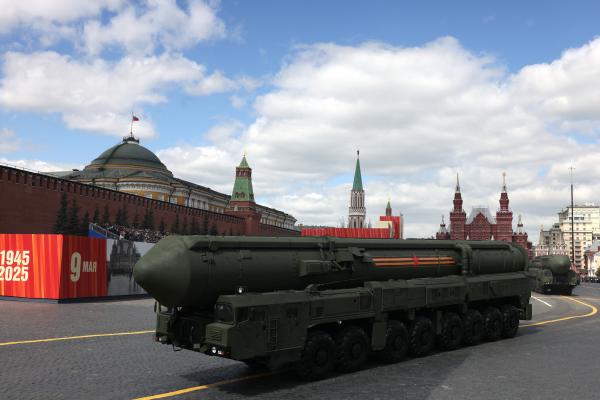
Join Assistant Secretary of State for Arms Control and Nonproliferation Dr. Christopher Yeaw for a discussion on strategic deterrence.



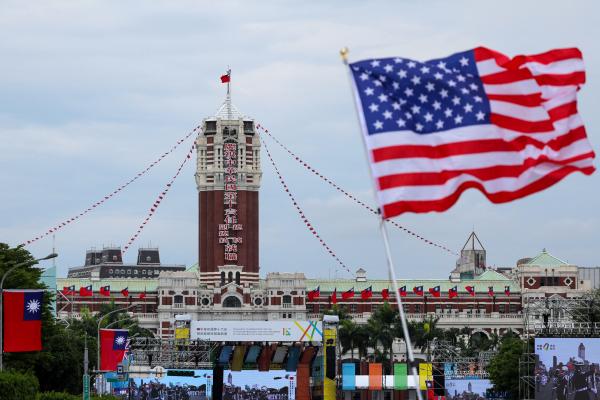
Join Hudson for an expert panel on why these deals are so important for both nations, what they mean for the future of US supply chains, and what potential challenges remain for implementing these deals.
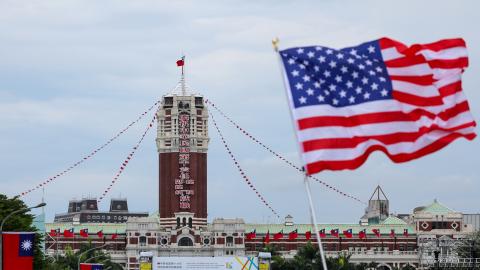
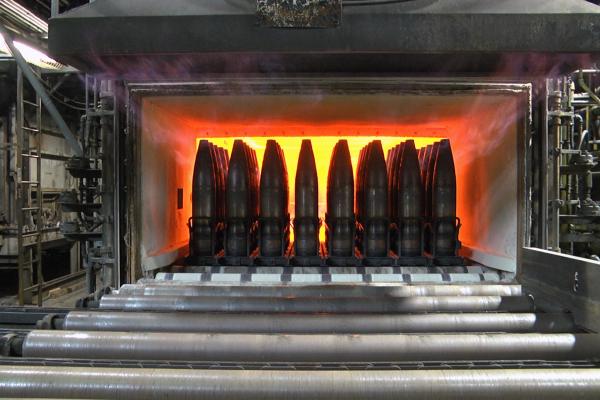
Join Hudson for a conversation with Assistant Secretary of War for Industrial Base Policy Michael Cadenazzi, who leads the DoW’s efforts to develop and maintain the US defense industrial base to secure critical national security supply chains.

